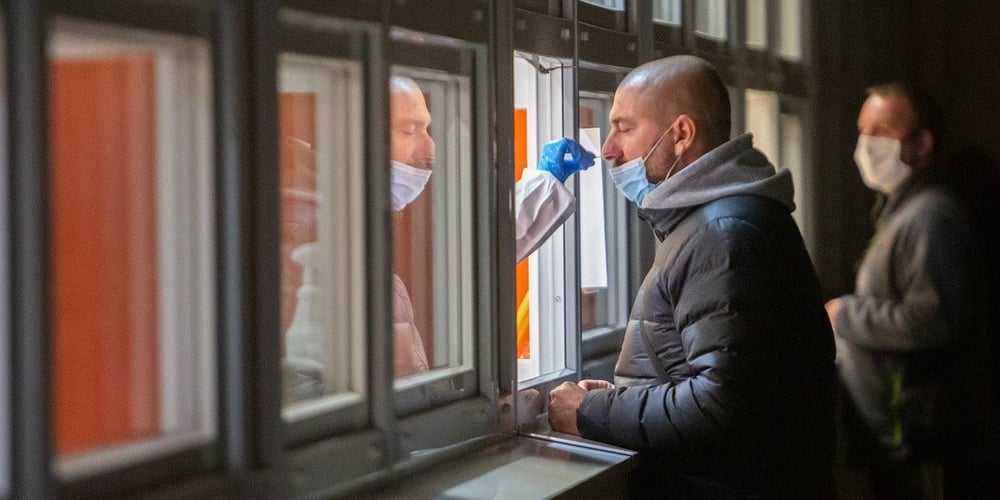
In February, the Biden administration released its National Strategy for the COVID-19 Response and Pandemic Preparedness, which outlines seven goals that address a domestic response and global response to the current COVID-19 pandemic and prepare for future health-related threats.
Foundationally, the plan’s goals revolve around establishing a science-based approach to countermeasures against the COVID-19 pandemic that focuses on communication transparency, increasing vaccination rates, increasing diagnostic testing capacity (including monitoring the prevalence of genetic variants of SARS-CoV-2), and preventative measures for future epidemics/pandemics.
The release of a national plan to combat COVID-19 signifies a major push to leverage the resources the scientific community has amassed during the pandemic in a unified strategy. This plan emphasizes the continued importance of greater accessibility to authorized COVID-19 vaccines, increased testing capacity for higher-risk and under-served populations, and comprehensive tracking around emerging SARS-CoV-2 variants.
Once again, the diagnostic testing community will take center stage in the nation’s effort to subdue and overcome the pandemic.
An Overview of the COVID-19 Vaccines
The U.S. now has three vaccines against SARS-CoV-2 authorized by the FDA under the current COVID-19 Emergency Use Authorization (EUA):
- Pfizer-BioNTech was the first COVID-19 vaccine authorized by the US FDA (December 11, 2020) for individuals aged 16 and older. The vaccine contains SARS-CoV-2 messenger RNA (mRNA), which instructs cells in the body to make the virus’s spike protein. It causes a person’s cells to produce copies of the spike protein, which does not cause disease, but triggers an immune response against SARS-CoV-2. Supported by an international randomized, placebo-controlled clinical trial that enrolled 37,586 participants, where 18,801 individuals received the vaccine and 18,785 participants received saline placebo, it was 95% effective in preventing COVID-19 disease. Only a single participant who received the vaccine experienced severe COVID-19 symptoms during the trial.
- Moderna was authorized by the US FDA (December 18, 2020) for people 18 years of age and older. The vaccine is similar in design to the Pfizer-BioNTech vaccine in that they both rely on the SARS-CoV-2 spike mRNA to elicit an immune response within the body. The Moderna vaccine was tested for safety and efficacy in a clinical trial that enrolled a total of 30,420 volunteers, with 15,210 receiving vaccine and the remaining half receiving placebo. It demonstrated 94.1% efficacy with no safety concerns in this trial.
- Janssen Biotech Inc. requested an Emergency Use Authorization from the US FDA (February 4, 2021) for its single-dose COVID-19 vaccine for use in individuals 18 years and older. The FDA discussed the vaccine candidate during a Vaccines and Related Products Advisory Committee meeting on February 26 and the vaccine received authorization under the EUA for COVID-19 on February 27. This vaccine has a different design than Pfizer-BioNTech and Moderna, as it uses a modified, non-disease-causing virus (adenovirus type 26) to deliver double-stranded DNA of the SARS-CoV-2 spike protein to human body cells. The body’s cells will make the spike protein, eliciting an immune response against that SARS-CoV-2 protein. The Janssen vaccine is a single dose vaccine that demonstrated 72% efficacy in the U.S. (66% effective overall) at preventing severe COVID-19 disease in the ENSEMBLE trial (43,783 participants, including a total of 21,895 that received vaccine and 21,888 who received saline placebo).
An Update on COVID-19 Testing
The U.S. Department of Health and Human Services (HHS) has announced a plan to expand COVID testing capacity across the country. One of the plan’s major goals is to bring COVID-19 testing to schools, homeless shelters, and under-served populations. HHS will partner with the U.S. Department of Defense (DoD) to create hubs for COVID-19 diagnostic testing and seeks to increase testing capacity in diagnostic laboratories to achieve 25 million additional tests per month (a $650 million investment).
The President’s plan also includes provisions for stabilizing the diagnostic testing supply chain to facilitate the ramp-up in monthly testing. Toward that end, the plan will increase domestic manufacturing of tests and testing supplies through an $815 million investment in this sector.
Learn how ApolloLIMS can help your diagnostic testing lab keep up with rising demand amid the COVID-19 pandemic here.
Combating Emerging Variants of COVID-19
Over the past couple of months, it has become increasingly clear that the SARS-CoV-2 virus is highly mutagenic. For this reason, the President’s plan includes goals directed toward increasing viral genome sequencing from COVID-19 positive patients. The U.S. Centers for Disease Control (CDC) will partner with large commercial labs, academic and research institutes, small/medium commercial labs, and federal labs to increase the national sequencing effort. A total of $200 million will be invested and result in a 3x per week increase in SARS-CoV-2 sequencing.
This increased emphasis on sequencing demonstrates an understanding that the emergence of new variants may impact the effectiveness of the current vaccines that have received emergency use authorization.
Diagnostic Labs Must Rise to the Challenge
Even with two safe and effective vaccines, the Biden administration is putting diagnostic testing laboratories at the forefront of the fight against COVID-19. Together, this combined effort to increase vaccination rates, testing in high-risk populations, and SARS-CoV-2 genome sequencing will increase the demand on diagnostic laboratories to perform more testing and to report more results in a timely manner. In order for diagnostic laboratories to meet these challenges and ensure quality and efficiency, they must have high-throughput testing capacity and streamlined processes.
The ApolloLIMS team is ready to work with your laboratory operations team to ensure your laboratory is ready to face these increased testing demands. Contact our team to learn more about the Apollo Alliance.


